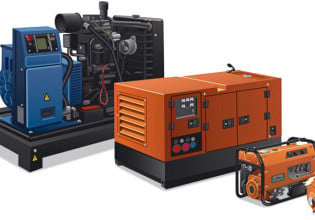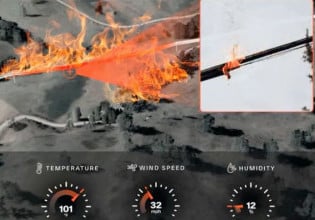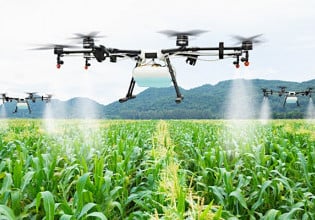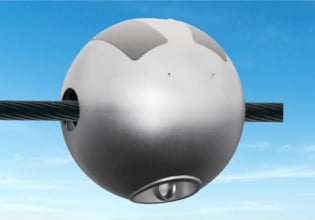Silicon Laboratories, Inc. today introduced a new family of high-precision temperature sensors claiming industry-leading power efficiency. Silicon Labs' ultra-low-power Si705x temperature sensors consume only 195 nA (typical average current) when sampled once per second, which minimizes self-heating and enables multi-year coin cell battery operation. Unlike traditional digital temperature sensors, the Si705x devices maintain their accuracy across the full operating temperature and voltage ranges and offer four accuracy levels up to +/-0.3 degree C. The sensors are designed for HVAC, white goods, computer equipment, asset tracking, cold chain storage, industrial control and medical equipment. AEC-Q100-qualified versions are also available for automotive applications.
Traditional approaches to temperature sensing that use thermistors or embedded MCU temperature sensors suffer from poor accuracy and higher power consumption. Although improved accuracy can be achieved through end-of-line calibration, this technique presents additional manufacturing costs and challenges while accuracy is still susceptible to variations in power supply voltage. In contrast, the Si705x sensors’ patented signal processing technology provides stable temperature accuracy over the entire operating voltage and temperature ranges without the need for costly end-of-line production calibration. In addition, the integrated low-power analog design delivers an optimal price/performance solution with up to 35 times better power efficiency than competing temperature sensor products.
Available in a compact 3 mm x 3 mm DFN package, the Si705x sensors feature an industry-standard I2C interface for easy configuration. Each device provides up to 14-bit temperature resolution for high-precision measurement, and the -40 to +125 degrees C temperature range is suitable for consumer, industrial and automotive applications. With a low 1.9 V minimum power supply voltage, the Si705x sensors can be connected directly to a battery without the need for an external voltage regulator.
“Temperature is the most pervasive environmental metric that embedded developers need to measure, and today’s designers expect exceptional power efficiency, accuracy and price/performance from their temperature sensing solutions,†said Ross Sabolcik, vice president and general manager of Silicon Labs’ Analog, Power and Sensor products. “Although many competing options are available for temperature sensing, the Si705x devices provide the most power-efficient option while maintaining accuracy across the entire operating voltage and temperature range so developers don’t need to compromise on performance.â€
The Si705x temperature sensors are the newest members of Silicon Labs’ growing portfolio of environmental and optical sensor products for the Internet of Things, consumer and industrial automation markets. Silicon Labs’ sensor portfolio includes relative humidity (RH) and temperature sensors, proximity and ambient light sensors, UV index and ambient light sensors, and capacitive touch sensors, as well as isolated ac current sensors and high-side dc current sensors for power management applications.
The Si705x temperature sensors are pin-compatible and software-compatible with Silicon Labs’ popular Si70xx RH and temperature sensor family. This compatibility enables existing RH sensor designs and software to be reused easily for temperature-only applications.
Samples and production quantities of Silicon Labs’ Si705x temperature sensors are available now. Si705x sensor pricing in 10,000-unit quantities begins at $0.61 (USD). The Si705x USB dongle evaluation kits, priced at $49 (USD MSRP), streamline Si705x sensor evaluation and application development. The Si705x USB dongle kits are supported by a Windows-based GUI that simplifies control of the Si705x sensors and temperature measurements. A variety of source code and driver examples is available in Silicon Labs’ Simplicity Studio development environment.






